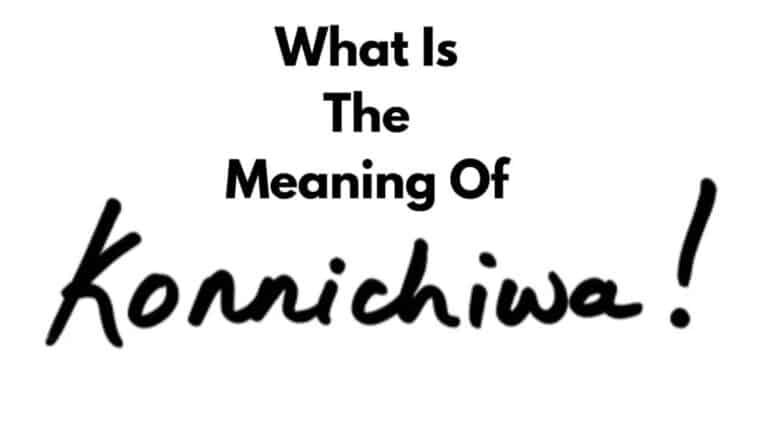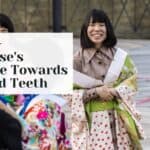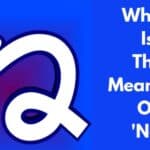Do you know the meaning of Konnichiwa? Let us talk more about this famous Japanese greeting and what they really mean.
There is no denying that Japan is the world’s most etiquette-conscious and polite country.
Although there are so many ways to greet someone in Japanese, the best way to strike up a conversation is with this simple greeting.
They go far beyond just a simple hello and goodbye with the usual bowing which are considered to be socially accepted within Japanese society.

All in all, it is important to greet somebody and know some of the common greetings that will help you bond with your Japanese peers.
If you have just started learning Japanese, it is hard to miss out ‘Konnichiwa’ (こんにちは).
Usually, it can be used for saying “hi” or “hello” but what it actually means is: ‘Good afternoon.’
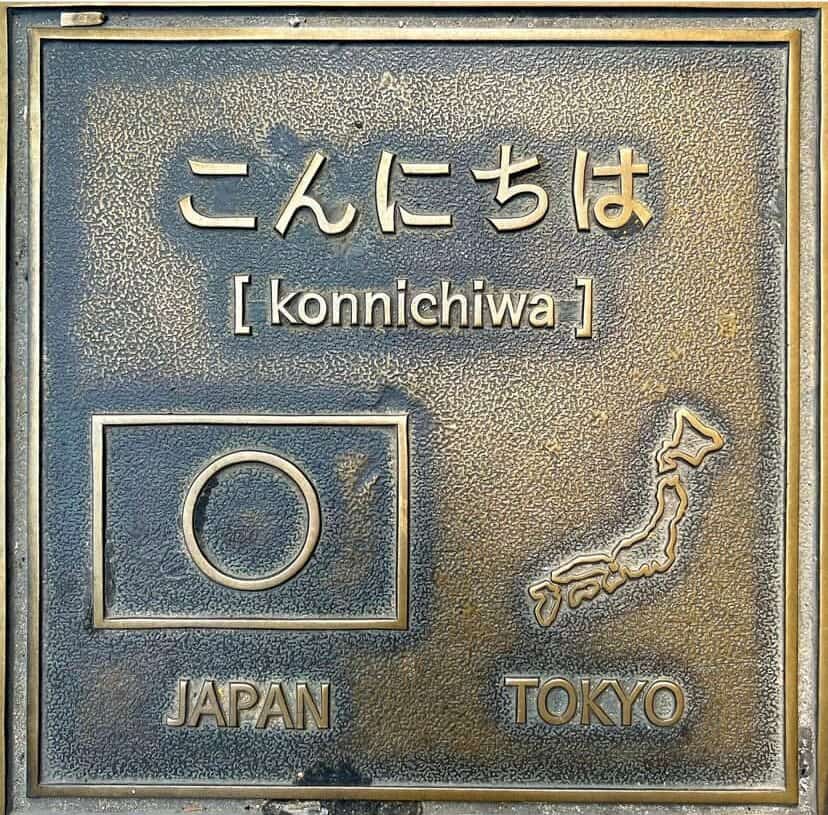
Let us learn a few phrases on how you can get started and expand your vocabulary.
Meaning of Konnichiwa (こんにちは)
The expression ‘konnichiwa’ is a very common Japanese greeting used to wish someone a hello or good day or afternoon (depending on the time of day).
Most Japanese people even use ‘konnichiwa’ as a way to say ‘goodbye’ to each other.
The term ‘Konnichiwa’ or ‘Konnichi wa’ is written in hiragana as こんにちは but if you write it in kanji it becomes it’s 今日は, it can be read as kyo wa or きょうは which means ‘today is.’
- Related: Meaning of Banzai in Japanese
- Related: Meaning Of Kusarigama
- Related: Meaning of Duomo
Origin of Konnichiwa (こんにちは):
The expression Konnichiwa originates from one of the three basic nomenclatures in Japan used in greetings between people.
It is very similar to other pleasantries like ‘Ohayo gozaimasu’ (おはようございます) or ‘Ohayo’ (おはよう).
Most Japanese people use it to bid a farewell or even a welcome greeting.
The term originally comes from a longer phrase:
- konnichi wa gokigen igaka desu ka
今日はご機嫌いかがですか?
How do you feel today?
That is the reason why Konnichiwa (こんにちは) ends with は (ha) instead of わ (wa). It consists of the connecting particle that comes from the longest sentence that is mentioned above.
- Related: Meaning of Maji in Japanese
So, originally, people often greeted each other with a longer expression such as:
- Kyou wa atsui desune
今日は暑いですね.
Today, it is hot.
- Kyou wa tenki ga ii desu ne
今日は天気が良いですね
Today, the weather is nice
Over time, they began shortening their greetings by eliminating the latter portions which eventually resulted in こんにちは or Konnichiwa.
What Is The Real Meaning Of Konnichiwa?
There is an ongoing debate on what Konnichiwa really means. Well, it can mean both a hello or good afternoon.
Although its formality is closer to a good afternoon, this Japanese greeting is commonly used as a hello just like in English.
While a hello may seem too casual, Konnichiwa is mostly used in formal settings and a little less among friends.
If you are wondering what part of speech it is, the term is nothing but an interjection.
As mentioned earlier、 it is also one of the three basic Japanese greetings together with Konbanwa (こんばんは) and ‘Ohayo’ (おはよう).
This brings us closer to the real original meaning of Konnichiwa because the kanji term 今日は can be read in two ways: Kyou wa or Konnichiwa.
While Kyou (今日) means ‘today’ and ‘wa’ (は) is a particle so together Kyou wa can be the start of a full sentence that translates into ‘Today is’ or ‘Today.’ So, it can get a little confusing or mixed up at times.
- Related: Meaning of Ureshii and Tanoshii
How To Use Konnichiwa Incorrectly?
Konnichiwa is usually used to greet someone a ‘good morning’ or ‘good afternoon.’
So, to say ‘good evening’ is incorrect because Japanese greetings can be very time specific.
For example, instead of greeting someone Konnichiwa in the morning, use Ohayo Gozaimasu which is equivalent to saying good morning. For a more casual version, you can say ‘Ohayo.’
Sometimes people even make a spelling mistake and may use Konbanwa which is the correct word for ‘good evening’ or ‘good night.’
They leave out one of the ‘n’ characters in Konnichiwa, spelling it as Konichiwa.
Similarly, you cannot use this term in the evening as you will say Konbanwa. You see, the word ‘ban’ means “evening”.
And in the word Konnichiwa, ‘nichi’ means day so it cannot be used in the evening.
It is important to keep this in mind because you wouldn’t want to offend anyone.
Let’s say you are talking on the phone and instead of saying ‘Moshi Moshi,’ you say ‘mushi mushi’ which means ‘bug’ or ‘ignore.’
You will want to use these greetings appropriately without hurting anyone’s sentiments and feelings.
Acceptable Ways to Use Konnichiwa
Use the term to greet someone a good afternoon, good morning, or just a simple hello.
Keep in mind that this term is a shortened format of a longer-form greeting and is even a well-understood term around the world thanks to its adoption in media and culture.
You can use ‘konnichiwa’ in verbal exchanges, messages, chats and even text communications.
Unlike the difference between ohayō gozaimasu (formal occasions) and ohayō (informal occasions), you can say konnichiwa with both people you either know or don’t know equally.
Just like the formal greeting Ohayō gozaimasu, it is common to say konnichiwa while giving a head nod and a smile in less formal occasions and while bowing in formal occasions.
Konnichiwa is one of the most common greetings. There are also other kinds of greetings based on age, gender, status and rank.
This is very different from English greetings, which is more flexible and less formal.
While you are on the phone, avoid using the term Konnichiwa as it is not the term for greeting on the phone.
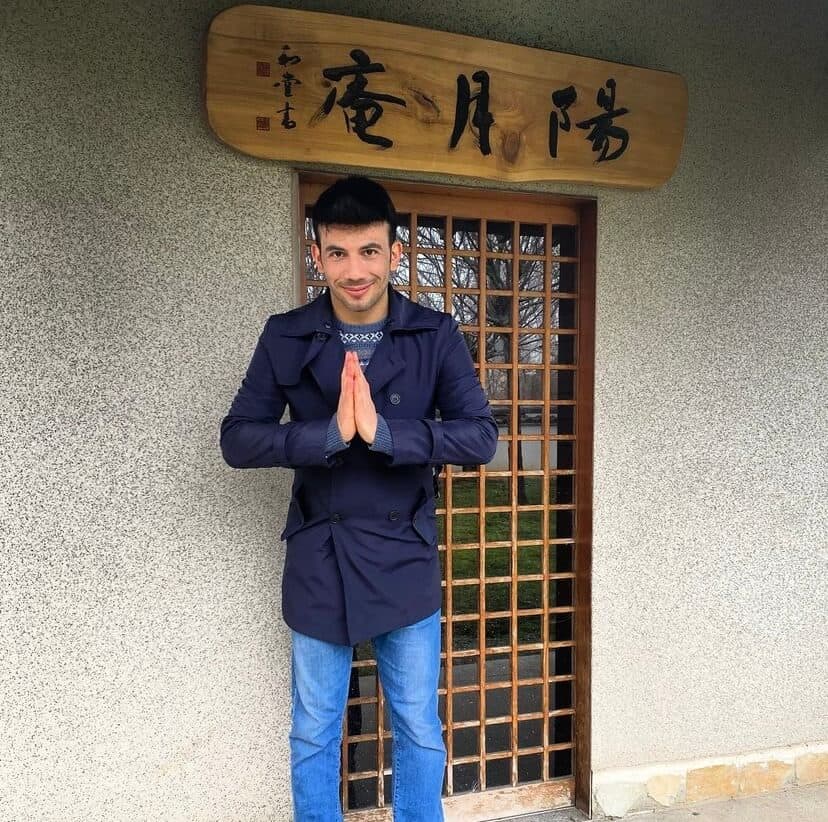
In this case, you will use ‘Moshi moshi’ which means Hello but it cannot be used in person.
- Related: Meaning of Moe Moe Kyun
How To Reply To Konnichiwa?
When someone greets you with Konnichiwa,the most appropriate and basic reply would be: Konnichiwa (こんにちは).
This is because it is common in Japan to respond with exactly the same phrase.
After that, you can ask a follow-up question.
Let us understand this with an example:
Greeting: Konnichiwa (こんにちは) or Hello/Good Day/ Good Afternoon
Best Formal Reply: Konnichiwa (こんにちは) or Hello/Good Day/ Good Afternoon
Ogenki desu ka?
お元気ですか
How are you?
- Related: Meaning of Ohayou Gozaimasu
Value of Konnichiwa in Japan:
The importance of greeting someone with Konnichiwa allows you to connect and communicate with someone else which is the bridge to start a conversation.
In Japan, respect is one of the most important tenets embedded in everyone, so even children at school are taught these greetings at a very young age.
A simple greeting such as Konnichiwa is a stepping stone for which great relationships are built.
This greeting sets an impression during introductions and first-time meetings which is a reflection of respect.
Remember to always greet someone with a lot of energy and excitement, a bow, eye contact in the right manner and posture.
Whether you are planning to move to Japan for work, would love to go there on a holiday or just learn the language, take the time to understand the meaning of such greetings in detail.
It will help you build deeper connections and bonds with the people and also understand the culture a little better.
Why does it mean Good Afternoon?
Even though the word Konnichiwa means good afternoon, it actually refers to the whole day. While Ohayou is usually used in the mornings, Konnichiwa can be used in the afternoon. In fact, both terms can be used any period of the day, and Konnichiwa is usually used between 10 am and 5 pm.
Whom can you say Konnichiwa to?
Konnichiwa is a polite greeting to say hello when you meet someone for the first time. You can use it on people with higher status or older. However, at times it can be considered too formal and can be avoided when used with close friends.
Do you bow when you say Konnichiwa?
Yes, you can simply greet someone with a nod or a bow and say Konnichiwa that is applicable for both casual and formal situations. A Japanese bow indicates how formal you are and the deeper the bow, the more formal it is. Longer bow indicates more respect and a short bow is more casual, so timing is very important when greeting somebody.
Conclusion:
I hope this article has helped you understand this term a little better so whenever you are unaware of which greeting you should use, just stick to the basic Konnichiwa to greet someone.
It might not be the most natural greeting at times but it won’t be considered impolite or wrong.
To summarize, Konnichiwa is a fairly greeting word that can be used on anyone even if the person is older or of a higher social rank.
It is also used at any time of the day even though the literal translation means: ‘Good Afternoon.’
You can either bow to each other or nod when you say Konnichiwa.
Go ahead and ask your Japanese friends to teach you some other casual phrases and informal greetings too.
Let us know what is your way to greet somebody in Japanese?
Do you stick with the traditional greeting or do you try a few slang terms?
Also Read


